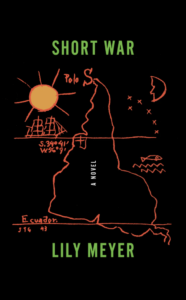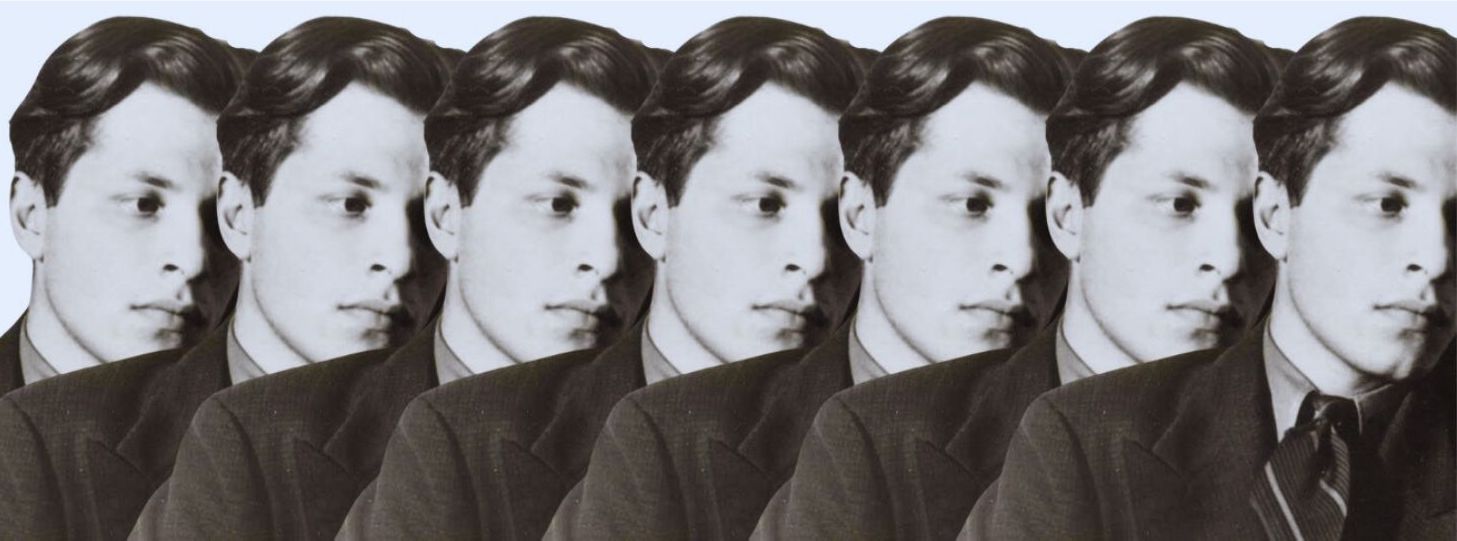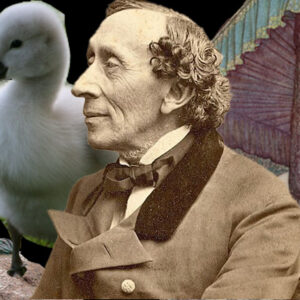According to comments the novelist Joshua Cohen recently made in the New Republic, I am, despite my two Jewish parents, very nearly not a Jew. Cohen dismisses any critique of Zionism made on Jewish grounds by people who “don’t speak any of the Jewish languages. They don’t know the Jewish texts or live in Israel. And if they’re going to have children, there’s nearly a 50 percent chance they’re not going to have them with Jews.” My husband was raised Protestant; I speak only English and Spanish; I live in the United States. As for the Jewish texts? I haven’t cracked Deuteronomy lately, but I, like Cohen, am a novelist, and I take seriously the power of books other than the Torah to help us comprehend both the world and ourselves.
For much of my life, I’ve grappled with what it means to be both an American and a Jew. It matters to me to be included and invested in the country where I live, to take responsibility for its misdeeds and to work as I can to improve its behavior. My novel Short War, which is about an American Jewish family dealing with the aftermath of its patriarch’s involvement in the CIA-sponsored coup against the Chilean president Salvador Allende in 1973, is an example of that work. I want the Chilean coup to be discussed openly as part of American history, a crime we funded and for which we must take communal accountability. I want American Jews, in particular, to count ourselves in; to include ourselves in the bad parts of American history as part of building the good.
I have come to that desire, as I come to most of my ideas, through literature—which is all to say that, while I may not be up on my rabbinic commentary, I am fluent in the Jewish texts that matter to me. I have my own canon of writers who are both committed to and curious about Jewish participation in the American project: Isaac Bashevis Singer, Philip Roth, Laurie Colwin, Deborah Eisenberg, Grace Paley, Michaels Chabon and Kazin, and, lately, Delmore Schwartz.
I knew for years that Delmore—in his life, he was always known by the goyish-sounding given name he reputedly hated—belonged in my canon, but until recently, it was tough to get to his work. A literary star even before his debut collection, In Dreams Begin Responsibilities, came out in 1937, he hit both hard times and bad reviews starting with his 1943 book-length poem Genesis: Part One, although John Berryman called it “one of the greatest imaginative works of the century.” With the exception of Summer Knowledge: Selected Poems, released in 1959, Delmore’s many subsequent books performed poorly. He suffered years of addiction and mental illness before dying alone in a Broadway boardinghouse in 1966, and much of his work, including Genesis, vanished from print.
I have been on the lookout for Genesis since I came across Summer Knowledge in college and was taken with its swagger and drama, the beauty and bombast of Delmore’s odes to art. What struck me most, though, was a pair of poems called “The True-Blue American” and “The Would-Be Hungarian,” which are intensely Jewish without ever using the word Jew.
In the former, Delmore writes about a boy “who understood America, for he felt that he must / Think about everything;” in the latter, he describes one who “Suffered and knew the fate of being an American” because he, alone among his classmates, is not a first-generation Hungarian immigrant. In these poems, being American means greed, ambition, hopeless efforts at assimilation. It means wanting to belong in a place too vast to offer one form of belonging—a place where antisemitism is and has always been endemic, but where Jews have thrived, I would say, more than anywhere else in history.
Many American Jews have a vexed relationship to the question of our belonging. I spent many years wondering to what degree I was an outsider in the country of my birth. I have never felt like one (except around Christmas); my encounters with malicious antisemitism have almost all happened in other nations. At home, I both appreciated the progressive Jewish narrative of aligning ourselves with the oppressed because we have so often been oppressed and wondered what good it did for me, a white American, to see myself as oppressed.
Heavy freedom is, of course, a description of adulthood. I’d say it’s a good description of being an American, too. Jews have been freer in the modern United States than just about anywhere else, and in that freedom begins responsibility.Reading Grace Paley got me a long way toward my answer. Paley wrote in all kinds of solidarity: with her fellow “coworkers in the mother trade” and her fellow civil rights activists; with the victims of CIA-sponsored civil wars in Nicaragua and El Salvador; with Palestine. In “Two Short Sad Stories from a Long and Happy Life,” released the same year as Summer Knowledge, Paley’s fictional avatar, Faith, tells her ex-husband that “Jews have one hope only—to remain a remnant in the basement of world affairs—no, I mean something else—a splinter in the toe of civilizations.”
Gross as the phrase may be (sorry, Grace), I would like, to some degree, to be a splinter in my country’s toe: a reminder, an irritation, a nudge. But a splinter, you can pull out. It is my feeling that Jews cannot and should not be pulled out of the United States: our diaspora here dates back to the 1600s, after all. What I want, and what I tried to write about in Short War, is an American Jewishness that preserves the prickliness Paley describes but releases the sense of being a remnant. In Genesis, I found it.
Genesis: Book One is back in print this year, accompanied by some 350 typescript pages of the never-published Book Two. Together, they are the centerpiece of the new Collected Works of Delmore Schwartz, edited by Ben Mazer, and they’re as Jewish and American as I dreamed they would be. Genesis, which is written in a mix of prose poetry and Modernist verse, tells the “endless story” of a New York Jew named Hershey Green. (I assumed “Hershey” was short for “Herschel:” nope, he’s named for the candy.) Delmore starts the poem in czarist Russia, where Hershey’s grandfather “suffered the humiliation of being the butt / and Jew” of Cossack army officers, and follows the family’s immigration to the United States, which Delmore describes as a “growing deity” where “you can leave the womb a second time.”
Delmore’s belief in the effect of country on individual fate runs through the poem. “O what piercing power nations have!” cry the ghosts who form Genesis’s chorus. Moving to the United States turn the men in Hershey’s family from the butt of Cossack jokes to dedicated capitalists (or worshipers of “Capitalismus,” as the poem has it). It gives them the option of assimilating, which they leap at: Hershey’s parents do a bad-enough job communicating Jewishness to their son that when bullies drench him with a hose for being Jewish, he runs home asking, “what was wrong, what was being a Jew?”
In adulthood, Hershey has enough of a feeling of Jewish alienation to hear carols as “Christmas Christian echoes [that] moved through the dark, racketing like ashcars on the sidewalks of modern life,” but Christianity doesn’t alarm him the way it might a true victim of religious repression. Neither does it seem to alarm Delmore: he refers to baby Jesus as “the puking child” early in Genesis, and, throughout the poem, refers to him as “Jacky Christ.”
As Hershey grows up, he becomes as comfortably American as the chocolate bar he’s named for. His family has enough money that, like many real Jews of his generation, he can go to summer camp in order to be more like WASPs comfortable in rural as well as urban settings. He goes to Giants games and gets interested in art; the chorus of ghosts develops an interest in history for him, constantly bringing up Valley Forge and the Civil War, which haunts the text as the country’s original capitalist sin. (“North and South were losers both,” Delmore writes: “Capitalismus won the Civil War.”)
Book Two is missing the prose sections that carry much of Book One’s narrative forward, but we can gather that it ends with a second capitalist sin: the crash of 1929, which sets Hershey up to enter adulthood at a deeply precarious American moment. Delmore treats this as a form of liberation, even a rebirth, like emigration. He writes, “all begins again… / When you see freedom heavy in your hands.”
Heavy freedom is, of course, a description of adulthood. I’d say it’s a good description of being an American, too. Jews have been freer in the modern United States than just about anywhere else, and in that freedom begins responsibility. I wrote Short War out of a sense of outrage at atrocities my country funded decades before my birth. I’m outraged at the one my country is funding in Gaza now. Reading Grace Paley and Deborah Eisenberg, who, like Paley, chronicled US-backed horrors in Central America in the ’80s, teaches me to express that outrage.
Reading Genesis teaches me to express it not as a splinter in my country’s heel, but as my country. Its chorus of ghosts reminds me—reminds any reader who doesn’t come from a Daughters of the American Revolution-type family—that, for better and worse, I’m connected to the United States going back to Valley Forge. I might as well take the connection seriously. I don’t have anywhere else to go.
_________________________________________

Short War by Lily Meyer is available for preorder via Deep Vellum.



